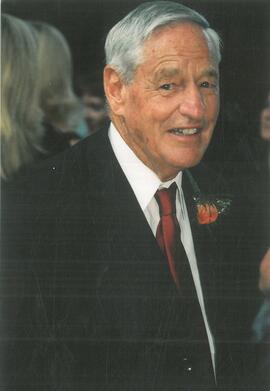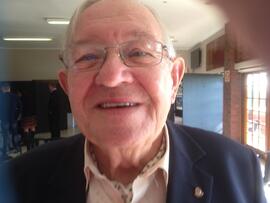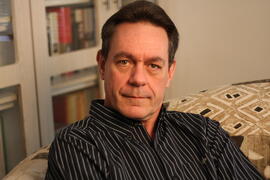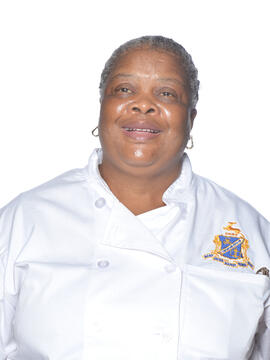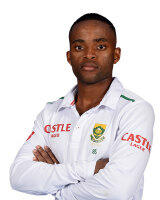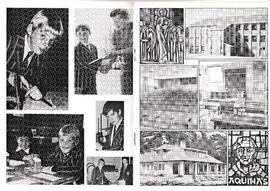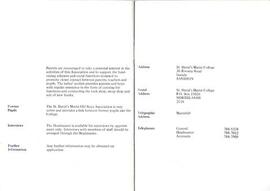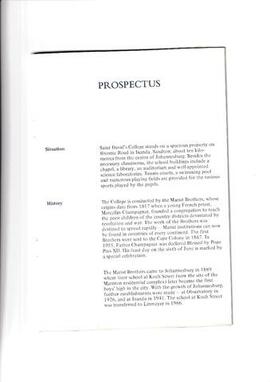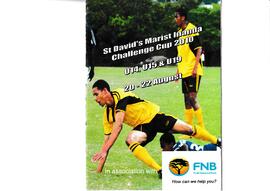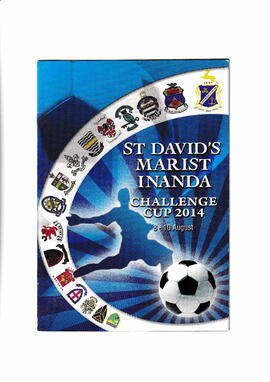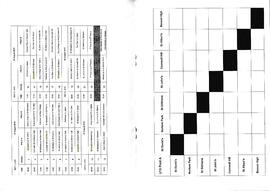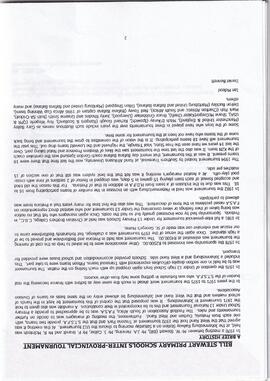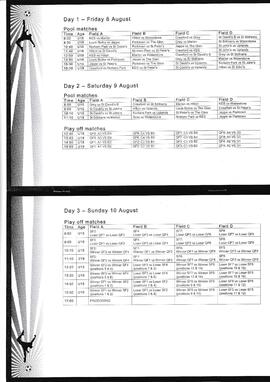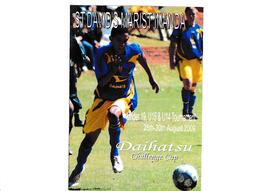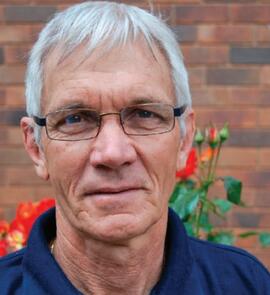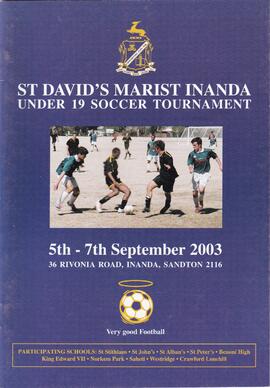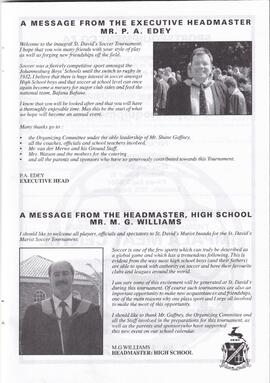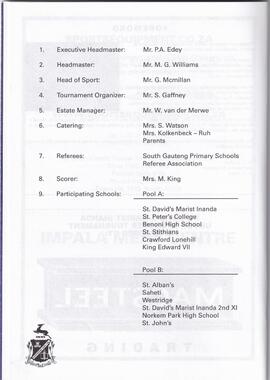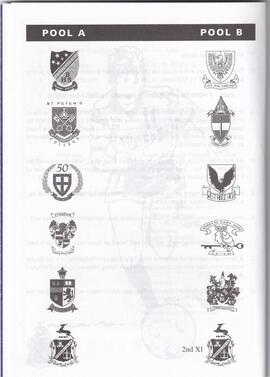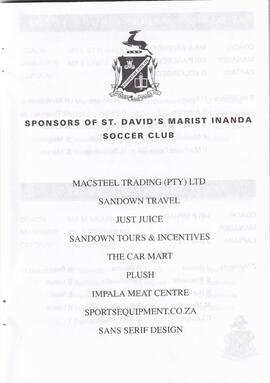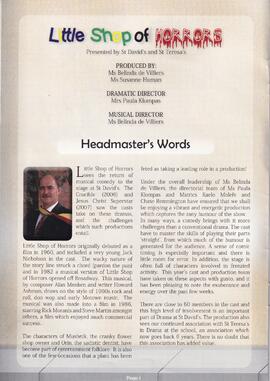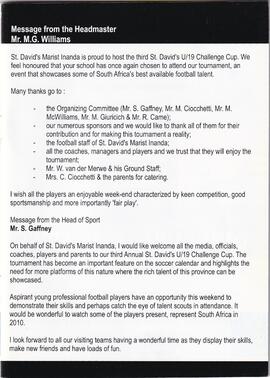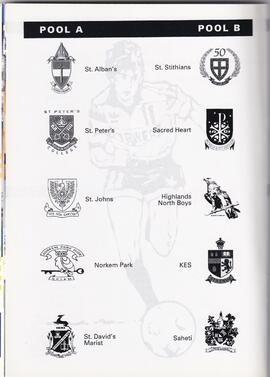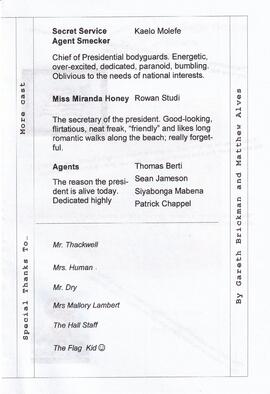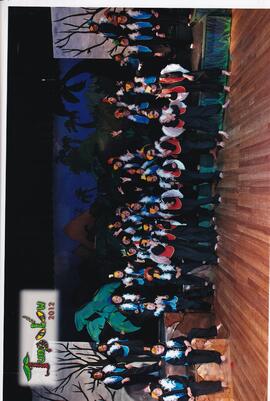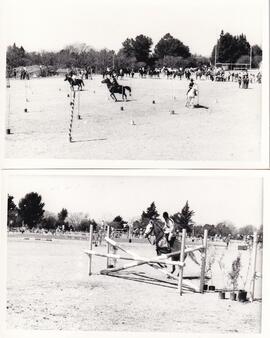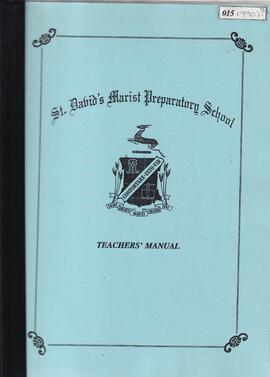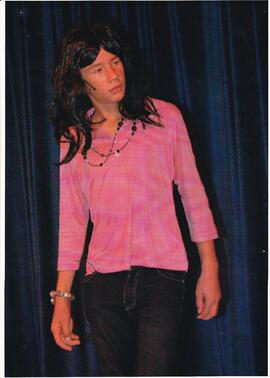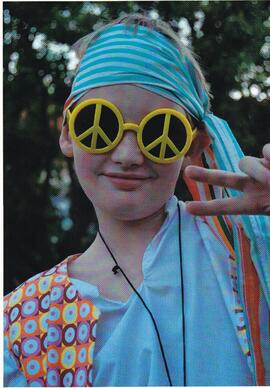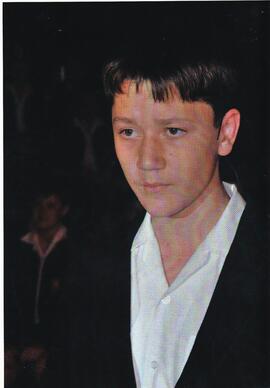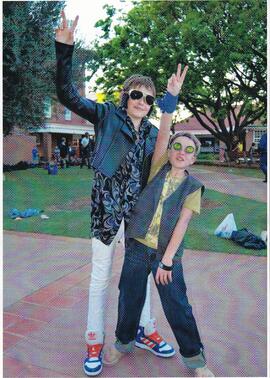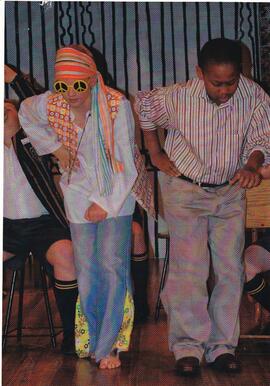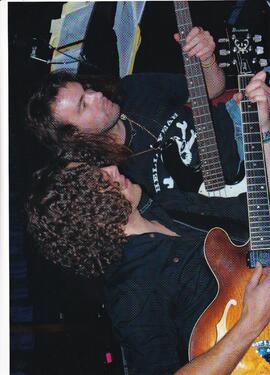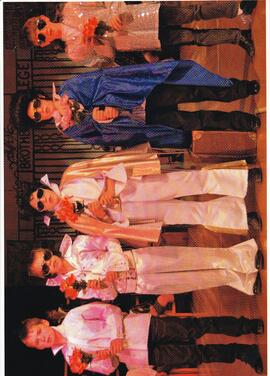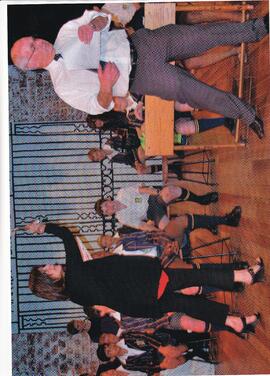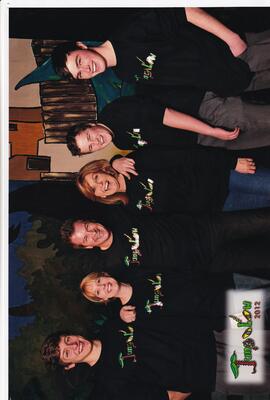Willem
Good evening ladies and gentlemen, the Marist Brothers who are present here, Mr
Greeff, Mr Wilson, Mr Williams, members of the board and PTA, staff, Vaughan and
Matthew (Willem’s sons and other family members) and all the friends of Willem J van
der Merwe. In Marist school culture there is a Marist style based on presence,
simplicity, family spirit, love of work and Mary’s way. Willem’s love for the Marist
Brothers is evident with their presence here and he really appreciates you coming to
share this occasion with him. Willem was born in Cape Town and went to school at
Northlea in Rhodesia and he is the only South African citizen that I know that has two ID
books with different dates of birth and I leave it up to your imagination as to what he
uses them for.
How do you summarise a lifetime? Well, it will take a while so I suggest you make
yourselves comfortable and pay attention.
Willem arrived at St David’s 32 years ago and I still recall my first meeting with him
when Brother Anthony introduced me to a Texan smoking, ex-Zimbabwean soldier,
cement factory builder, farmer, handyman, steel worker, grass grower, builder, plumber,
welder and fixer of anything but unfortunately Willem couldn’t swim. Willem and I took
swimming lessons at the Eskom swimming pool and I had to pretend that I couldn’t
swim so as not to embarrass him as he was training for Iron Man.
When Willem first arrived at St David’s it was very simple, there was no tractor, there
was no bakkie, no tools and there was definitely no golf cart. There were no fences
around St David’s and keeping people off the property was a huge nightmare. Pupils on
motor bikes were the worst especially when they chose to ride on the cricket pitches.
One such person, who shall remain nameless proceeded to do a victory lap down
Rivonia Rd after destroying one of the pitches and with the help of Brother Aidan’s X-ray
vision, we got his number plate and the rest was history.
Years ago the school still owned the four bottom rugby fields and additional oval that
bordered on Rivonia Road and on one of our excursions down there to see what was
happening, we found a shebeen buried in the ground. On one cold morning we had to
remove a dead body. This person had obviously succumbed to the cold weather. The
police were called and order was restored.
One weekend, on a trip to the Rugani farm, we brought the old tractor back to St
David’s where Willem fixed up Rugani 1 and that is the red tractor that you still see
driving around the school nowadays.
I see Louis, Willem’s brother, John Williamson and Alex Chemaly and a few other
friends here who attended a bachelor party at John’s grandmother’s house where we
needed to bring in a full cleaning company to restore the house to it’s former glory, after
the party. I still think Louis and Willem are traumatised by that event as they had just
arrived from calm Zimbabwe.
We all remember Willem’s big foot Ford bakkie that was used for pulling the
lawnmower, carrying building supplies from the hardware, and giving kid’s rides on their
birthday parties. Willem loved custom made vehicles and fast bikes. Every three
months the latest, fastest motor bike was heard driving out of his house on Sunday
mornings to the breakfast run.
My first recollection of Willem’s sporting ability was when we were sitting in Willem’s
lounge in January 1980 and we were watching television and Willem said how great it
would be to run the Comrades marathon that was advertised on TV. My immediate
comment was to tell him that the first thing he needed to do was to stop smoking. He
then picked up the last pack of Texan Plain and threw it in the rubbish bin and the next
10 Comrades were history.
Willem has toured the world and been to places that we would only dream of. After
returning one holiday from a trip to Tokyo and having arrived at home at 2 in the
morning, he was rudely awakened by Tom McFadden and I as we had not yet qualified
for Comrades and had to run the Benoni Marathon that morning to qualify.
Willem’s claim to fame after Comrades races was that he was always dehydrated and
had to be taken every year to hospital to have drips put into him to rehydrate him. Two
incidents that really stand out were on one of our Comrades races, at 62km, I was going
to stop with ITB. Needless to say, on sitting down on the pavement, I received a quick
smack on the side of the head and was told to get my A into G and reminded that this
was my fault and he would be dragging me all the way to Durban.
Another incident I recall was on a flight to Two Oceans with George Ndlovu, Willem’s 2
IC on the support staff. There was a bomb scare over Bloemfontein. The plane
dropped out of the sky, the chutes came out, and Willem and George had to run from
the runway to the airport. He did have quite a job to get George back into the plane to
get down to Cape Town as George had never flown before.
I’m sure Willem remembers these trips to Cape Town where we used to sleep in the
sick bay at St Joseph’s and our long chats with Bro. Benedict and Brother Lawrence in
the evenings.
Willem has, apart from Comrades, Two Oceans and Iron Man also completed numerous
94.7 and Argus Cycle races, Fish Canoe Marathons and over 20 Duzi’s. I will never
forget the day when he asked me to second him on one of his Iron Man escapades.
Needless to say that, I was more broken than he was at the end of the event.
One night when Willem and I were on a training run down Fricker Rd. All the cars were
parked on the pavement for the cricket test at the Wanderers. On running past one of
the cars, we noticed someone lying on the front seat. We decided to turn back and see
what was happening. Someone was trying to steal a radio out of the car so we decided
to play policeman and immediately hauled the chap out of the car. We managed to get
some wire and tie him up to the door until the police arrived to take him away.
When Willem arrived at St David’s, his first workshop was part of the old stables which
also doubled up as a shebeen for Osborne, next to what today is the Astro. His love of
work was pushed to the limit as the area adjacent to his workshop, the present car park,
was a huge hole where parents would drop and fetch their kids. Willem went about
filling the hole turning it into a prep school playground with grass and irrigation. It took
over 200 loads of sand to level that area.
In his first few years at St David’s, Willem’s love for family was demonstrated by
extending his involvement in school activities. Willem used to help coach rugby and
accompanied tours especially our trips down to East London where he had a fine
reputation of dancing all night in the Numbers Discotheque. He then started the canoe
club which went from strength to strength and a number of boys that he coached have
represented the country and our boys have done exceptionally well in SA championship
races particularly our prep team who, for the last three years have won the South
African prep school championship sprint awards.
If it wasn’t for Willem, I would probably not still be at St David’s, so you can blame him
for me still being here. He built my house on the property from scratch and he also built
the swimming pool roof with help and prayers from Father Brewer that makes our pool
the best school pool in South Africa. Not many of you know that Willem laid out the
piping for the clinic in Slough that Brother Anthony was building. He assembled it on
the service road and then took it apart and took it to Slough to fit into the new clinic.
Our prep pavilion was also one of Willem’s building projects. When Mr Royce, Willem
and I decided to build this we had no permission from the brothers or school to build this
facility. We had trucks delivering in the middle of the night and laid the roof between 2
and 4 in the morning so when Brother Timothy saw this building going up, he
immediately challenged us and some very smooth talking took place to allow us to
complete this building. Willem also revamped his present house which was the old
brothers quarters and sick bay and was also our fourth pub on the property on our pub
crawls. At this point the usual procedure was to drink out of the ladies shoes before
heading off to the next house. No more will be said about these escapades.
The Roxy Rhythm Bar in Melville with Brother Vincent as our handbrake often turned
into very late nights and very quiet Friday mornings.
I remember having tickets for the Michael Jackson concert and the only one I could
force to come with me was Willem. What are friends for? Willem also went to see ZZ
Top but didn’t like them too much! He was jealous of their beards.
Willem loves animals and Socks and Megan were always part of the school and
everyone on campus knew who their boss was.
At the end of each term, we always used to have fantastic staff parties and on one of
these occasions, at Glenda Anderson’s house, Willem and I managed to put a huge
rock in the passenger side of Carol Ansell’s box Renault. The car immediately tilted to
the left. After the party, we all stood and watched Carol Ansell drive home sideways
without even noticing that her car was at an acute slant and how she got home we still
wonder to this day.
Willem and I used to have great fun on evenings when Mr Paul Davies, the then
headmaster, when he would entertain and we would sit in The prep school playground
with a six pack and keep switching the lights off in his house periodically. Needless to
say, Willem was called to his office the next morning to get an electrician in to sort out
these power surges.
Our fields, buildings, gardens, swimming pool, cricket pitches hold testament to Willem’s
huge contribution in maintaining our facilities which no other school can match.
We wish Willem good luck, good health and our thanks go with him in the next stage of
his life. We are really going to miss you.
Please charge your glasses as we propose a toast to the super man of St David’s
Marist Inanda.

